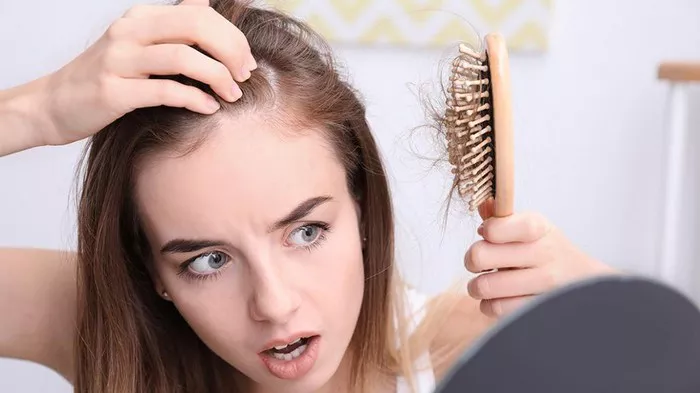Hair loss is a common concern for many individuals, and certain treatments can be contributing factors. Understanding the relationship between specific treatments and hair loss is crucial for making informed decisions about your hair care journey. In this article, we delve into the world of hair loss caused by various treatments, drawing on the expertise of professionals in the field. From medications to cosmetic procedures, we explore the possible causes of hair loss, providing authoritative and credible insights to help you navigate potential risks.
Understanding Hair Loss
Hair loss, also known as alopecia, is a condition that affects both men and women. It can be caused by various factors, including genetics, hormonal imbalances, medical conditions, and treatments.
What Treatment Causes Hair Loss
Hair loss can be caused by various treatments, and understanding the potential side effects is essential for making informed decisions about your hair care journey. Here are some treatments that may lead to hair loss:
1. Medications and Hair Loss
Certain medications may lead to temporary or permanent hair loss as a side effect. These may include:
a. Chemotherapy Drugs:
Powerful cancer-fighting medications can harm rapidly dividing cells, including hair follicles, leading to hair loss during treatment. Hair typically regrows after chemotherapy is completed.
b. Anticoagulants:
Blood-thinning medications may disrupt the hair growth cycle, resulting in hair shedding.
c. Antidepressants:
Some antidepressants are associated with hair loss as a rare side effect.
2. Hair Loss from Cosmetic Procedures
Certain cosmetic procedures may also contribute to hair loss:
a. Hair Extensions:
Improperly installed or excessively tight hair extensions can lead to traction alopecia, a form of hair loss caused by tension on the hair follicles.
b. Hair Straightening Treatments:
Chemical-based hair straightening treatments may weaken the hair shaft, leading to breakage and hair loss.
c. Excessive Styling:
Frequent use of heat styling tools and aggressive hair styling can cause hair damage and breakage.
How to solve the problem of hair loss?
Hair loss can be a distressing concern, but there are several approaches to address and manage the issue effectively. Here are some practical steps to help solve the problem of hair loss:
1. Adopt a Healthy Lifestyle:
Maintain a balanced diet rich in essential nutrients, vitamins, and minerals to support hair health. Regular exercise and managing stress can also positively impact hair growth.
2. Gentle Hair Care:
Avoid harsh hair treatments, excessive heat styling, and tight hairstyles that can cause hair damage and breakage. Opt for gentle hair care practices to minimize stress on the hair follicles.
3. Topical Treatments:
Over-the-counter topical treatments, such as minoxidil, may help promote hair regrowth. Follow the instructions and be patient, as results may take several months.
4. Prescription Medications:
In some cases, prescription medications may be prescribed to address hormonal imbalances or underlying medical conditions contributing to hair loss.
5. Hair Transplantation:
In cases of advanced hair loss, hair transplantation procedures may be considered to transplant healthy hair follicles to areas of thinning or baldness.
Other Considerations
Hair loss treatments may vary based on the underlying cause and individual needs. Patience is key, as hair regrowth takes time. Always consult with a qualified healthcare professional before starting any hair loss treatment to ensure a safe and effective approach tailored to your specific situation. With the right approach and care, you can address the problem of hair loss and work towards healthier, more resilient hair.
Conclusion
Understanding the treatments that cause hair loss is vital for maintaining healthy hair and making informed decisions. Whether it’s medications, cosmetic procedures, or styling practices, the impact on hair health should be considered. Consulting with medical professionals ensures accurate diagnosis and appropriate treatment plans. By prioritizing credible and expert advice, you can effectively manage hair loss and embark on a journey toward healthier and more resilient hair. Remember, seeking professional guidance is crucial in navigating the complexities of hair loss and finding the best solutions for your unique needs.


